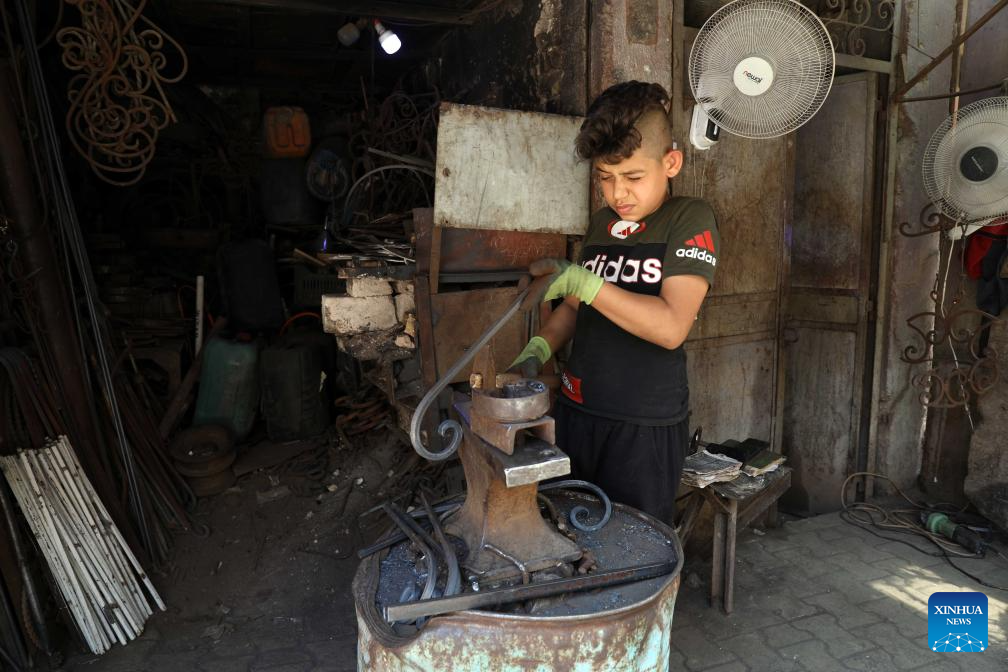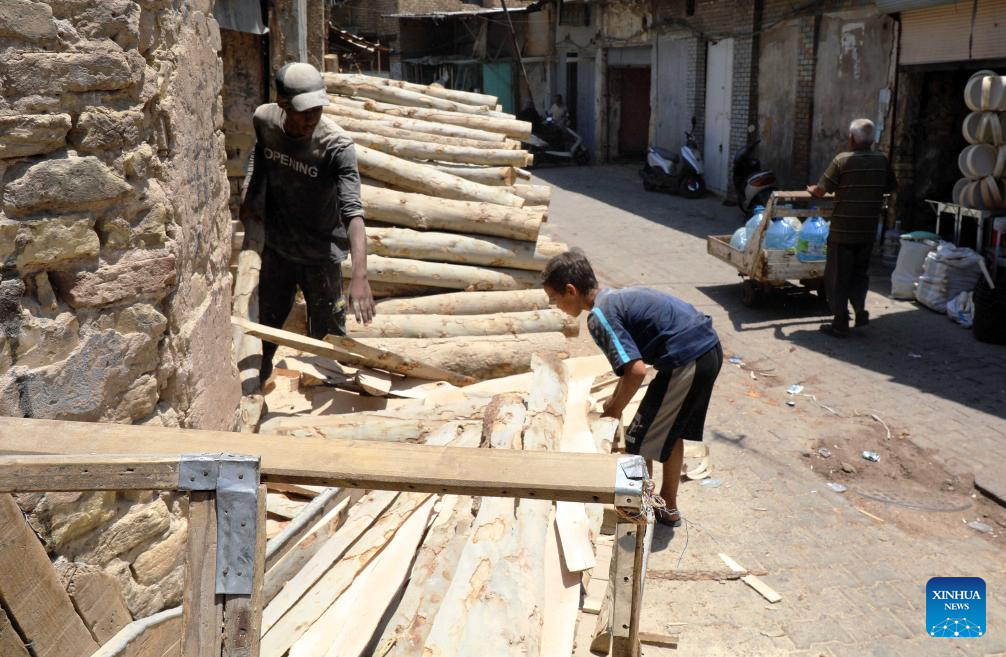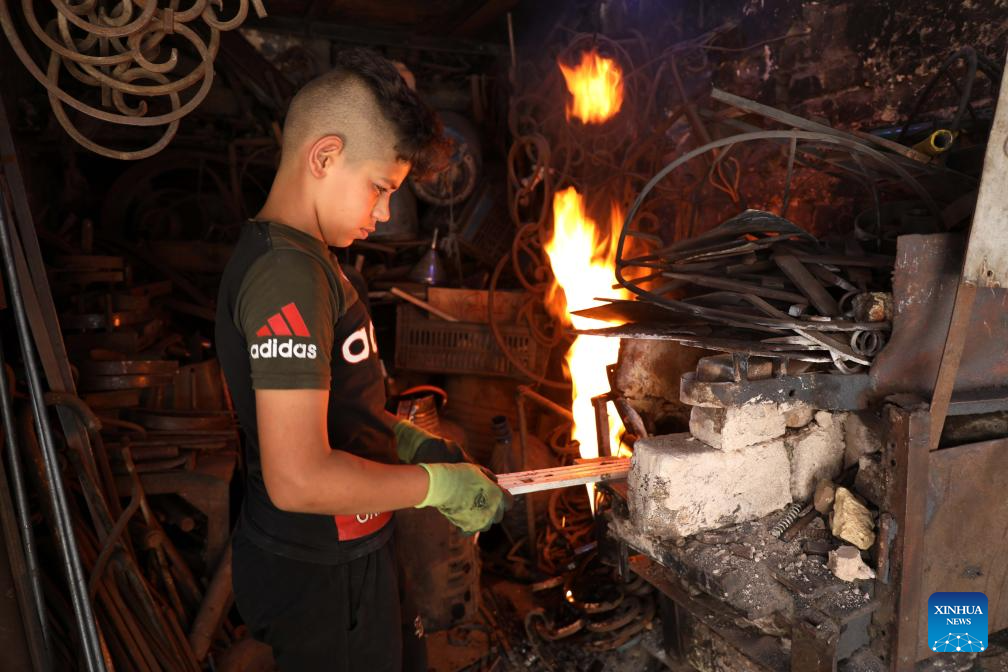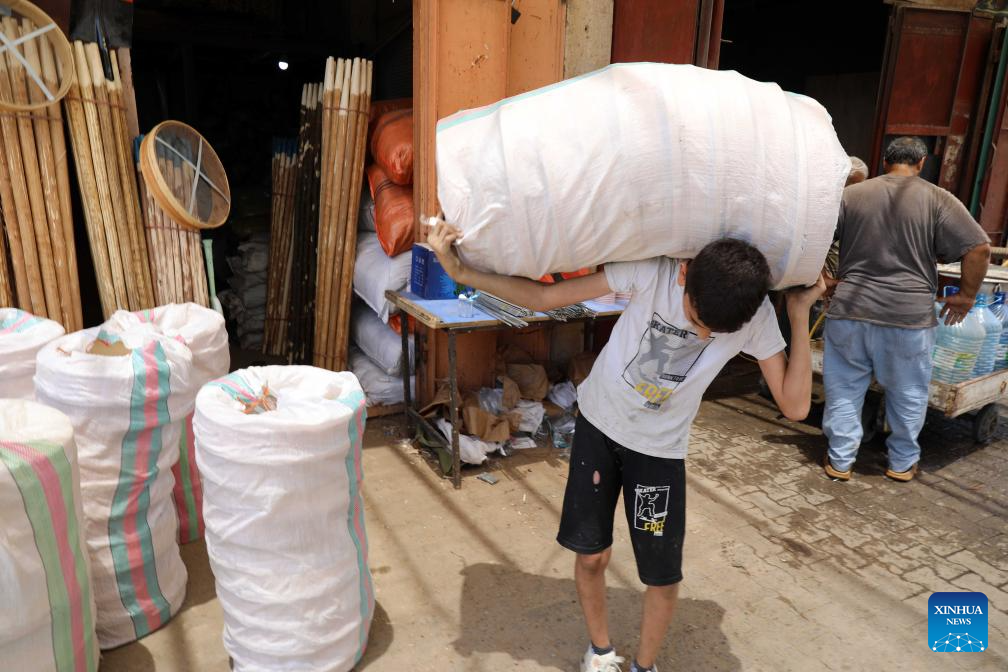
Sajjad, 14, works in a blacksmith shop in Baghdad, Iraq, on June 8, 2024. (Xinhua/Khalil Dawood)
BAGHDAD, June 12 (Xinhua) -- Twelve-year-old Salih has never set foot in a classroom. After his father was killed in a car bombing attack years ago, the weight of his family falls on his small shoulders.
The eldest son in a family of seven; his days are spent navigating the al-Shorja wholesale market in Baghdad, pushing carts laden with goods for a meager wage, and for six days a week.
Salih is not the only premature bread earner in the family. His 10-year-old brother also toils in the market as there are many mouths to feed in their family.
"I wish I could go to school and spend time with friends," Salih said, unable to imagine what school life is like or what he might aspire to be. Providing for his family's basic needs consumes all his time and energy.
Salih is just one of thousands of Iraqi children forced into labor by a confluence of poverty and instability.
As World Day Against Child Labor is to be observed on Wednesday, the Iraqi government faces an uphill battle in curbing the widespread incidence of child labor.
Mohammed Fahim, a lawyer in Baghdad said the Iraqi law prohibits child labor under the age of 15, with penalties for violations including imprisonment or fines. However, thousands of impoverished families have been forced to send their children to work, in spite of the potential punishment, because there is no greater punishment than starvation.
Child labor has become a persisting issue in the country as years of conflict caused prevalent poverty. In 2023, the United Nations cited a survey as saying that "5 percent of children aged 5 to 14 years in Iraq are engaged in child labor, with higher rates among children living in low-income households and rural areas."
In Baghdad, where temperatures have already soared above 45 degrees Celsius, 14-year-old Sajjad works in his uncle's blacksmith shop, striking an iron bar on an anvil to earn a living and support his crippled father.
"I work to support my family because our financial situation is difficult," said Sajjad, who earns 10,000 dinars a day (about 7 U.S. dollars), working from 8:00 a.m. to 5:00 p.m. with only an hour for rest.
"My father cannot work due to illness, so I need to support my family with daily expenses," Sajjad said. "I hope that the children in Iraq can live in peace and security so that they do not have to work when they are young."
The U.S. invasion of Iraq in 2003, which, while destroying the Iraqi state apparatus, also shattered the local political order and social stability and caused serious political, economic, and social unrest.
"The U.S. invasion has led to calamities in Iraqi society, including the absence of the rule of law and the state prestige, which has led some people to exploit children and throw them into labor fields," Fahim said.
"The Iraqi children paid heavy prices, they lost their right to enjoy a secure and happy childhood, as well as education. Instead, many of them were left on the streets to work at an early age," Fahim noted. ■

Salih, 12, loads wood onto his cart in a wholesale market in Baghdad, Iraq, on June 8, 2024. (Xinhua/Khalil Dawood)

Sajjad, 14, works in a blacksmith shop in Baghdad, Iraq, on June 8, 2024. (Xinhua/Khalil Dawood)

Salih, 12, loads wood onto his cart in a wholesale market in Baghdad, Iraq, on June 8, 2024. (Xinhua/Khalil Dawood)

Abbas, 14, works in a carpentry workshop in Baghdad, Iraq, on June 8, 2024. (Xinhua/Khalil Dawood)

Sajjad, 14, works in a blacksmith shop in Baghdad, Iraq, on June 8, 2024. (Xinhua/Khalil Dawood)



